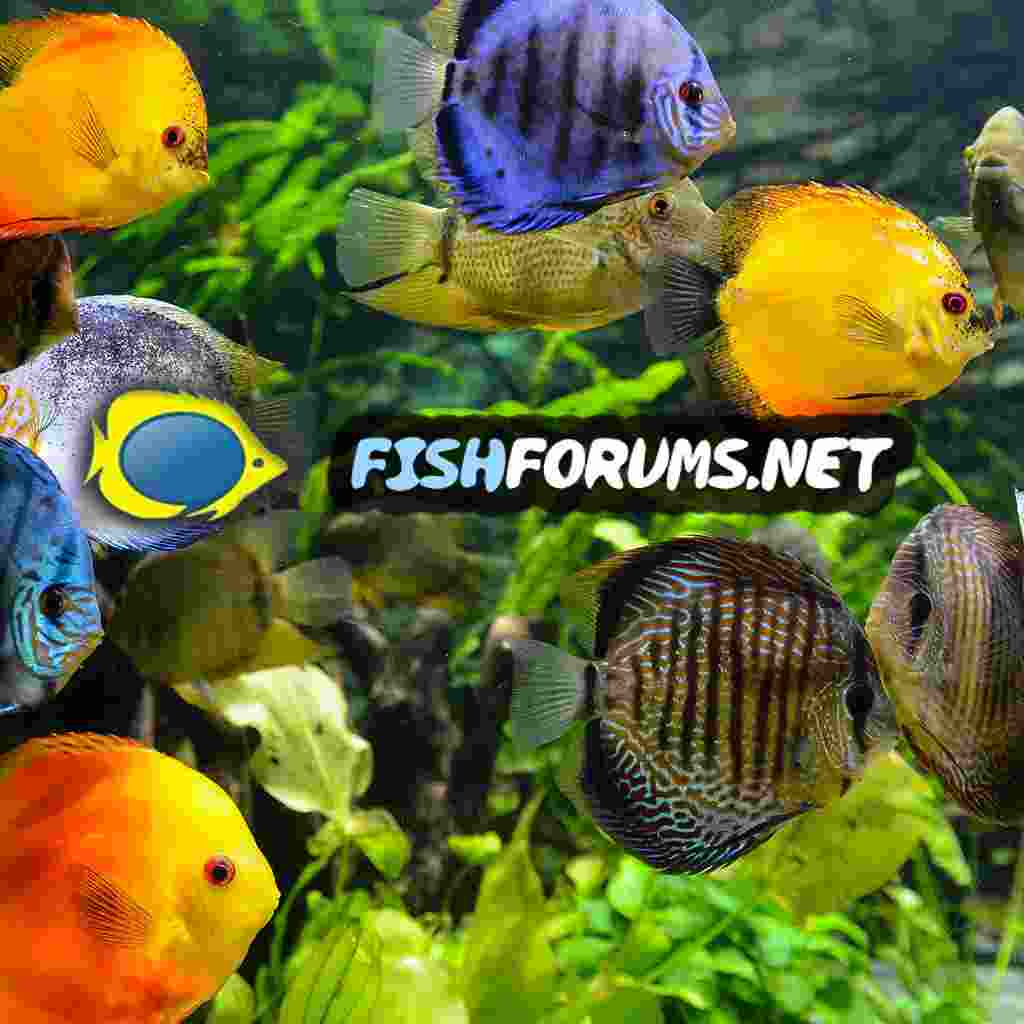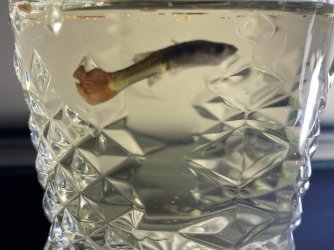Hi and welcome to the forum

Never flush a fish down the toilet. If they have a disease it can get into the local waterway and kill native fish.
I would say the fish has intestinal worms and gill flukes. These parasites suck the blood out of the fish and cause it to die from lack of blood.
The gill flukes can be treated with salt. See directions below.
Intestinal worms can be treated with Levamisole, Praziquantel, or Flubendazole.
Section 3 of the following link has the directions for treating intestinal worms in fish.
Fish do a stringy white poop for several reasons. 1) Internal Bacterial Infections causes the fish to stop eating, swell up like a balloon, breath heavily at the surface or near a filter outlet, do stringy white poop, and die within 24-48 hours of showing these symptoms. This cannot normally be...

www.fishforums.net
--------------------
SALT
You can add rock salt (often sold as aquarium salt) or swimming pool salt to the aquarium at the dose rate of 2 heaped tablespoons of salt per 20 litres (5 gallons) of water.
If you only have livebearers (guppies, platies, swordtails, mollies), goldfish or rainbowfish in the tank you can double that dose rate so you have 4 heaped tablespoons of salt per 20 litres.
Keep the salt level like this for at least 2 weeks but no longer than 4 weeks otherwise kidney damage can occur. Kidney damage is more likely to occur in fish from soft water (tetras, Corydoras, angelfish, Bettas & gouramis, loaches) that are exposed to high levels of salt for an extended period of time, and is not an issue with livebearers, rainbowfish or other salt tolerant species.
The salt will not affect the beneficial filter bacteria but the higher dose rate (4 heaped tablespoons per 20 litres) will affect some plants and some snails. The lower dose rate (1-2 heaped tablespoons per 20 litres) will not affect fish, plants, shrimp or snails.
After you use salt and the fish have recovered, you do a 10% water change each day for a week using only fresh water that has been dechlorinated. Then do a 20% water change each day for a week. Then you can do bigger water changes after that. This dilutes the salt out of the tank slowly so it doesn't harm the fish.
If you do water changes while using salt, you need to treat the new water with salt before adding it to the tank. This will keep the salt level stable in the tank and minimise stress on the fish.
When you first add salt, add the salt to a small bucket of tank water and dissolve the salt. Then slowly pour the salt water into the tank near the filter outlet. Add the salt over a couple of minutes.






